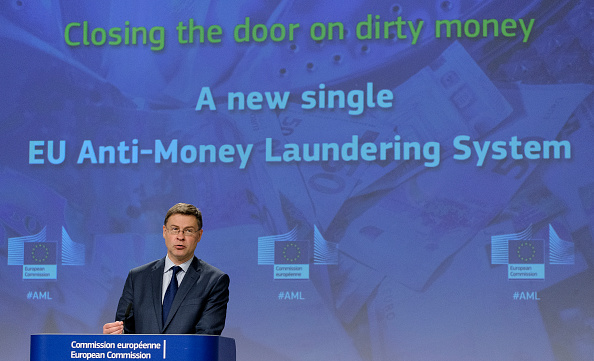Parisians are to vote on whether to hit owners of 4×4 vehicles with parking fees as high as €18 an hour – three times the current rate.
It remains to be seen who will win out on February 4 in Paris Mayor Anne Hidalgo’s initiative, pedestrians or 4×4 (SUV) drivers.
European SUV sales have risen sharply, from one-in-five vehicles in 2014 to more than 50 per cent last year.
The outcome of the vote on tripling SUV parking charges could determine whether other cities follow the Paris initiative.
“If it fails, it could send a dangerous signal,” said Benjamin Chadwick, a software developer who writes a blog about Paris.
“Polling shows a majority of Parisians support the measure. But do they care enough to show up and vote?,” he said.
Polling suggests 61 per cent favour the higher parking charges for 4x4s, with 37 per cent against.
Still, the turnout could be relatively low; just 7.5 per cent of eligible voters took part in last year’s vote to ban “free-floating” e-scooters in Paris.
As Chadwick pointed out: “The people most passionate about SUV parking are people who want to park their SUVs.”
Opponents of the Mayor might also be more likely to turn out to cast a protest vote against her.
“Maybe people who see an opportunity to give Hidalgo ‘the finger’,” said Chadwick.
“If I had to place a bet, I’d say we’ll see very low turnout again and the measure will be rejected.”
Hidalgo’s move comes as Europe’s cars, led by Germany, are becoming bigger.
In Germany, the average car was 1.815 metres wide in 2020, up from 1.482 metres in 2001. That is an increase of almost a quarter (22.5 per cent) in two decades.
Some critics have noted that, unusually for a measure aimed at wider cars, the parking fee figure, if adopted, is to be based on a measure of weight instead.
The proposed tax would apply to fossil-fuel cars weighing more than 1.6 tonnes and electric vehicles topping the scales at two tonnes.
European cities are being left to regulate where national and EU policymakers have failed, said Oliver Lord, UK head of the Clean Cities Campaign.
Measures such as parking charges “are a backstop really and mostly an urgent response to there being poor regulation in the first place at a national and international level,” he claimed.
EU regulators “should at the very least be considering maximum widths for new cars. It’s absurd that new cars can be built as wide as trucks under current rules”, argued Lord.
With interventions such as the Paris push to raise parking charges and London’s Ultra Low Emissions Zone (ULEZ), “We have fallen into the habit of relying on city leaders to act to save lives because of poor regulation.”
ULEZ is an area in the UK capital where an emissions standard based charge is applied to non-compliant road vehicles.
“Cities don’t usually have a lot of powers, but parking charges are something most do have control over,” Chadwick pointed out.
Whichever way Parisians vote, other cities will be watching the outcome.
“What happens in Paris will not stay in Paris,” said Lord.





